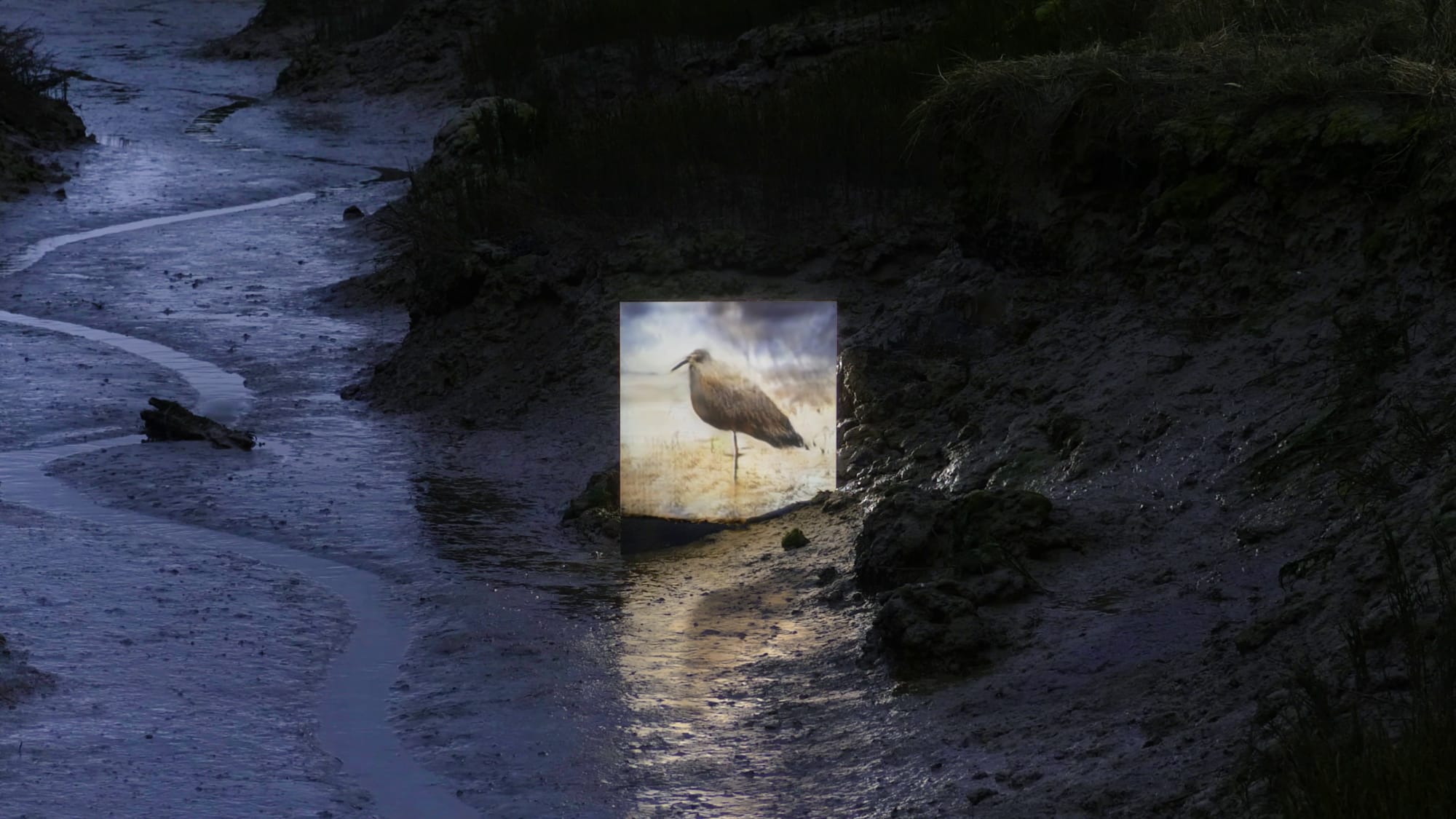CUSP, 2019
4K digital video & audio
Duration: 13 mins, loop
Ed. 3/5 + 2 APs
About The Artwork
A familiar childhood location on the Essex marshes is reframed by inserting images randomly generated by a neural network (GAN*) into this tidal landscape.Initially trained on a photographic dataset, the machine proceeds to learn the embedded qualities of different marsh birds, in the process revealing forms that fluctuate between species, with unanticipated variations emerging without reference to human systems of classification.Birds have been actively selected from among the images conceived by the neural network, and then combined into a single animation that migrates from bird to bird, accompanied by a soundscape of artificially generated bird song. The final work records these generated forms as they are projected, using a portable perspex screen, across the mudflats in Landermere Creek. The work both augments and disrupts the natural ecology of the location, as flocks of native birds enter a visual dialogue with these artificial ones.
*Neural networks are programming models which are biologically inspired and learn from observing data. GANs (generative adversarial networks) are neural networks which learn to mimic through generation and refinement.
Exhibitions
Data • Glitch • Utopia, Gazelli Art House, London, UK (2023)
»Biomedia«, ZKM | Center for Art and Media, Karlsruhe, Germany (2021 -22)
The Book of Sand, Aiiiii Art Center, Shanghai (2021 - 22)
Forschungsfall Nachtigall, Museum für Naturkunde, Berlin, Germany (2019 -20) ID. ART:TECH | CYFEST-12 (during Venice Biennale), Ca’ Foscari Zattere, Venice, Italy (2019)
Zabludowicz Collection | Invites (solo display), London, UK (2019)
Lying Sophia and Mocking Alexa, Today Art Museum, Beijing, China (2019)
About Jake Elwes
Jake Elwes (b. 1993) is a media artist who explores machine learning and artificial intelligence. Their work finds poetry and narrative in these systems' success and failures, their sophistication, and limitations, while investigating their code and ethics. In notable work, the Zizi Project, Elwes exposes AI bias by queering datasets with drag performers, simultaneously demystifying and subverting AI systems.
Elwes lives and works in London, having studied at The Slade School of Fine Art, UCL (2013-17). The artist's work has been exhibited in museums and galleries internationally, including the Victoria and Albert Museum, London; Somerset House, London; ZKM, Karlsruhe, Germany; Today Art Museum, Beijing; Yuz Museum, Shanghai; Pinakothek der Moderne, Munich; Frankfurter Kunstverein; Fotomuseum Winterthur, Switzerland; Honor Fraser Gallery, LA; Fundacion Telefonica Museum, Madrid; Ars Electronica, Austria; Zabludowicz Collection, London; Sculpture in the City, London; Science Gallery Dublin; RMIT Gallery, Melbourne; Onassis Foundation, Athens; Arebyte Gallery, London; E-WERK Freiburg, Germany; Museum für Naturkunde, Berlin; Nature Morte, Delhi, India; Centre for the Future of Intelligence, UK, and they have been featured on TV: ZDF aspekte (Germany) and the BBC Arts (UK).



